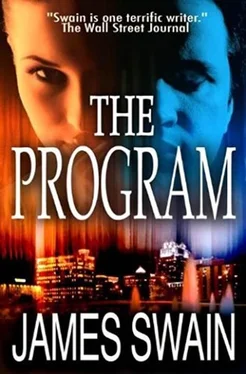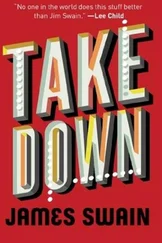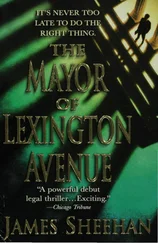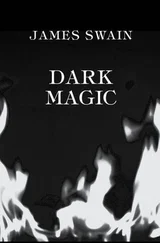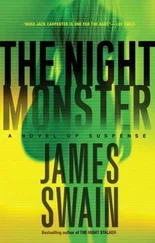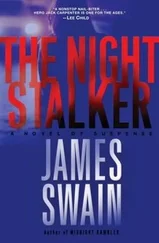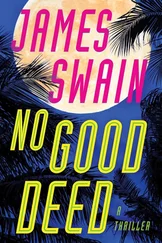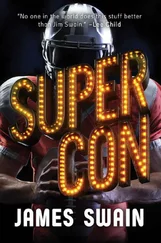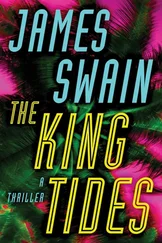“One moment, sir,” the operator said.
He was put on hold. The mosquitoes had invaded the van and were circling for the kill. He glanced in the mirror, and saw one attached to his forehead. He squashed it with the palm of his hand, leaving a blood stain on his skin.
“Warden Jenkin’s office. This is Carol,” a secretary answered.
Linderman identified himself and asked to speak to the warden.
“Warden Jenkins is currently in a meeting, and asked not to be disturbed. May I tell him what this is about?”
“I’m calling about an inmate who may be involved in the abduction of a teenage boy in Broward County,” he said.
“An inmate in Starke?”
“That’s correct.”
“Please hold on.”
As Linderman waited, he stared at Eric Drake’s list of names. He felt certain that Crutch was the man he was looking for. Mr. Clean was a serial killer, and there was no reason for him to be talking to the other five men – all drug dealers – on the list. By process of elimination, that left Crutch.
“This is Warden Jenkins,” a man with a booming voice announced.
“Special Agent Ken Linderman, FBI. I need your help, warden. A name has come up in connection with an abduction, and we think this person is an inmate in your prison.”
“How can that be?” Jenkins asked.
“It appears this inmate has had access to a cell phone, and was talking to his accomplice on the outside.”
“How did he get a cell phone?”
“One of your guards has been bringing cell phones into the prison, and giving them to an inmate named Thunder Martinez, who was passing them out.”
“A guard? Which one?”
“His name is Eric Drake.”
Warden Jenkins delivered a stream of obscenities into the phone.
“Drake brought six cell phones into the prison,” Linderman went on. “Five of the inmates who received the phones have been identified as drug dealers. We haven’t been able to identify the sixth man yet. We have a name, but think it’s a nickname.”
“What is it?”
“Crutch.”
“Crutch? You mean Jason Crutchfield?”
“Perhaps. Is he an inmate?”
“Yes, he is, but I find it hard to believe that he’d be involved in your case. Crutch is a model prisoner, and is coming up for parole in January. He does data processing in our records department, and has never caused any problems. Why, I just saw him an hour ago. We had a nice chat about the weather.”
“Could it possibly be someone else?” Linderman asked.
“Perhaps. We have fourteen hundred inmates.”
“Would you mind checking?”
“What exactly am I looking for?”
“Anyone with the word Crutch in their name.”
“This could take a while. We’re not totally computerized.”
“How about if I call you back in an hour?”
“Very well,” the warden said.
Linderman ended the call and got back on the Internet. Warden Jenkin’s reluctance to accept that Jason Crutchfield might be involved in wrongdoing was bothersome, especially considering the source of the information.
He returned to the FBI’s web site and pulled up Crutchfield’s criminal record. Jason Richard Crutchfield had been arrested in Melbourne, Florida in 1999 for the kidnaping and rape of a woman named Lucille Moore. His mug shot showed a diminutive man with glasses perched on the end of his nose, thinning hair worn in a feeble comb over, and feral-like features too small for his face. His head was tilted sideways, his eyes staring at the camera with distrust. The report was long and meticulously detailed, and Linderman read each word feeling like he’d stumbled upon a dark and terrible secret.
There are monsters, and there are monsters.
On a drizzly October morning in 1999, a thirty-three-year-old woman named Lucille Moore crawled naked down the sidewalk inside an upscale housing development in the town of Melbourne, Florida. Handcuffed and weakened by a severe loss of blood, Moore waved to passing cars until a good Samaritan came to her aid.
“Please don’t take me back to that house.” Moore pointed to a sprawling property at the end of the street with beautiful landscaping and a large swimming pool. Her rescuer wrote down the address and drove Moore to the hospital.
At the hospital, an emergency room doctor spotted bite marks on the side of Moore’s neck, and ran a series of tests that showed half the blood was gone from her body. No one at the hospital had ever seen anything like it before.
As Moore recovered, she told the police about the polite little man with the plaid sports jacket and red bow tie who’d offered her a ride home from a bar one night. Once in the car, the man had thrown a nylon rope around her neck, and strangled her unconscious.
Moore had awakened to find herself handcuffed to a shower, her kidnapper standing naked beside her. A video camera was set up, along with bright lights. With the camera rolling, her captor had raped her, then bitten her on the neck, and sucked down several pints of blood. Finished, he’d told her how delicious the blood had tasted.
Several hours hour later, the bizarre ritual had been repeated. Growing weak, Moore had realized that if she didn’t do something, she would die. Her captor had left the bathroom with the promise to be back soon. With the last of her strength, she’d ripped the showerhead out of the wall, and escaped through a window.
Moore’s abductor was soon identified by the police. Jason Crutchfield, age thirty-two, an MIT grad who worked as a computer engineer for a local NASA contractor. No criminal record, although he’d been a suspect in his college girlfriend’s slaying in Massachusetts a decade earlier, but never formally charged.
A team of policemen were sent to Crutchfield’s house armed with a search warrant. Crutchfield had greeted them at the front door wearing a satin smoking jacket and holding a pipe. When confronted, he’d claimed that he’d paid Moore for sex, and that nothing unusual had happened. He’d continued to embellish his story, and displayed all the classic signs of a sociopath.
Crutchfield was arrested, and a number of items of interest were seized from his house, including a video camera, a collection of S &M video tapes, and a stack of women’s necklaces hanging from a tie rack in his closet.
Crutchfield had refused to cut a deal with the prosecutor, and his case had gone to trial. He’d taken the witness stand in his own defense, and presented himself to the jury as a mild-mannered, soft-spoken man who listened to baseball games while tinkering with electronic gadgets in his basement. He’d stuck to his story about Moore being a prostitute, and claimed that Moore had told him she often sold her blood to raise cash.
To counter Crutchfield’s testimony, the prosecution had called Linderman’s mentor, FBI profiler Robert Kessler, as an expert witness. Kessler had worked on several cases involving human vampires, and was considered an expert on the subject.
Kessler had presented a different side to Crutchfield. He’d told the jury that the extreme physical and mental injury to Moore showed that Crutchfield was a sadist, while the presence of a video camera in the bathroom said the crime was premeditated. The manner in which Crutchfield had bitten Moore and extracted her blood indicated that he’d done this before, and the presence of the necklaces indicated there were many other victims. Clearly, Jason Crutchfield was a danger to society, and needed to be put away.
Kessler had made a strong argument for sentencing that exceeded the guidelines mandated by the court. The jury had agreed with Kessler, and had sentenced Crutchfield to fifteen years in prison, with a chance for parole in ten.
Читать дальше
